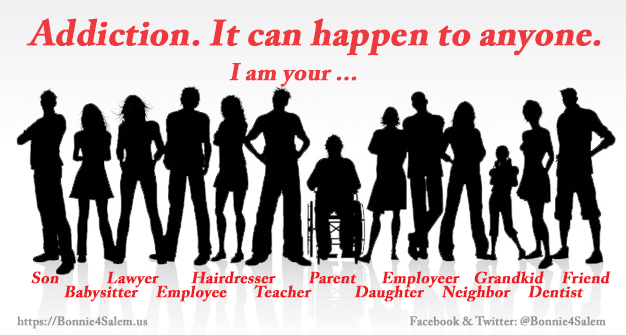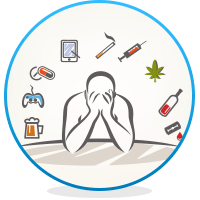
“Once an addict, always an addict.” I know, because people close to me have fought substance abuse issues. They are addicts.
I spent a fair number of years of my life with someone who was an alcoholic. He was a very good person, but it was always a challenge, trying to figure out when he was going to binge next. It got so I could see the signs that the next binge was coming, and they started coming more frequently. He would black out, and not remember some of the things he said while under the influence. It was hard, for both of us.
When he stopped drinking, cold turkey, it was even worse. He wanted a drink, but knew he couldn’t. He was angry, but didn’t have the skills to handle that anger. Eventually, our relationship couldn’t handle the stress of his drinking and my freaking out about it, and we had to go our separate ways. Happily, after our breakup, he went to AA. I’m thrilled to know that now, almost 20 years later, he is still doing well. Even though I haven’t seen him for years, we occasionally talk, and he remains a dear friend.
Addiction. Mental Health Issues. They go hand-in-hand. Sometimes an addiction causes the mental health issues, such as when the addict gets hooked while fighting pain issues, but then does things they wouldn’t do if they weren’t fighting the pain and the addiction. Sometimes a person fighting depression turns to substance abuse as a means of fighting their depression. I don’t think we can separate the two issues.
This is why helping people with the disease of addiction is so very important to me, and why, as a State Rep, I will fight to make the opioid crisis and mental health issues one of my top priorities.
This is a good video for anyone who is suffering from addiction, either as a user or as someone who is affected by the actions of the user.
https://www.facebook.com/Graniterecoverycenters/videos/678240125868515/
Know that you are not alone.
 Image from https://addictionresource.com/addiction/
Image from https://addictionresource.com/addiction/
